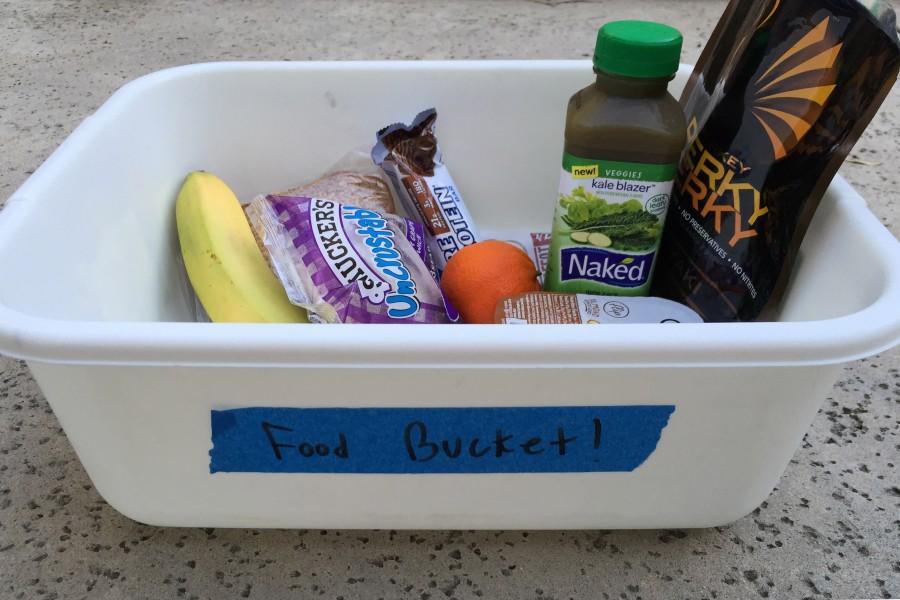Food bin for the future
SMCHS is overlooking opportunities to reduce food waste.
Implementing the food bin has the potential to create significant change.
Jesus neither condones nor approves of wasting food. I distinctly remember reading in
John 6:12-13, “When they were filled, He said to His disciples, ‘Gather up the leftover fragments so that nothing will be lost.’ So they gathered them up, and filled twelve baskets with fragments from the five barley loaves which were left over by those who had eaten.”
This is a problem that goes widely unregulated in the Western world. Things like talent, opportunity and time are wasted every day without a thought. However, food should not be on that list. If proper effort was given to saving resources, starvation would not exist like it does today.
I’m not going to act like the saint here and say I never threw away a gross looking sandwich or fruit cup during my life. My middle school years practically consisted of me offering to trade my entire lunch with anyone else or just throwing the whole thing away and then complaining about being hungry. But I’m not proud of these memories, and my guilt took an extra shot freshman year when I went to my mom’s prayer group and met a man who came from Congo. He told me stories about the mass starvation there and how he would only get a mouthful of food each week. All of a sudden, I didn’t feel so hungry anymore.
After my appetite for waste got crushed, I began to recall times at my elementary school where there used to be a food bin in the lunch area. Kids would just drop in their unwanted food and leave it for another kid to possibly pick up in case they didn’t have a lunch or just wanted to trade it for something else. It worked out fairly well and things like fruit, granola bars and the occasional bag of Cheez-its could usually be found in it. However, as middle school rolled by, it was removed.
Now it’s high school, a different lunch game where you have the options to stand in a long line for pizza, French fries and hamburgers, or just bring your own food to eat…or not bring anything at all, which quite a few kids do.
So the underlying question that needs to be addressed is, “Why can’t SMCHS have a lunch shelter food bucket?”
It technically follows principles of Catholic faith, as it would give lunch-less students a possible option, and any nonperishable foods can be donated to a homeless shelter.
Reason such as allergies, which can easily be combatted with warning labels and specified bins, are hardly large enough cons to keep the pros of having a food bin from existing. Tackling hunger around the world is not a mission one high school can solve by itself, but rather an issue we as an institution and religion can show by taking these progressive steps.
“I think as a school we are also switching to less wasteful practices too,” said senior Thomas McClave. “For instance our tablets probably save us a lot of paper. I can’t tell you how many packets I would read and then throw away. So I think we already started decreasing our wastefulness, but I think food bins might be a good idea to continue decreasing.”
A food bin would also give students the option to change up their lunch for variety.
“I think promoting more wholesome lunches might help too,” McClave said. “Packaged food can’t be closed once their opened, meanwhile an apple or banana are more friendly and filling. I know through our service projects, like Loaves and Fishes, I saw how much people really value food and in some ways I find it demoralizing. I know it takes a lot of courage to go somewhere to ask for food because you must really need it, meanwhile when I say ‘I’m hungry’ it’s just because I haven’t eaten for an hour.”
Food bins would help increase a more wholesome diet and a more well-rounded perspective.
“We are a really privileged school in a really privileged area, and most people that come here have plenty of food,” said senior Josh Latham. “We should help lower income people and use our privileges to help people who can’t afford to eat like we can.”






